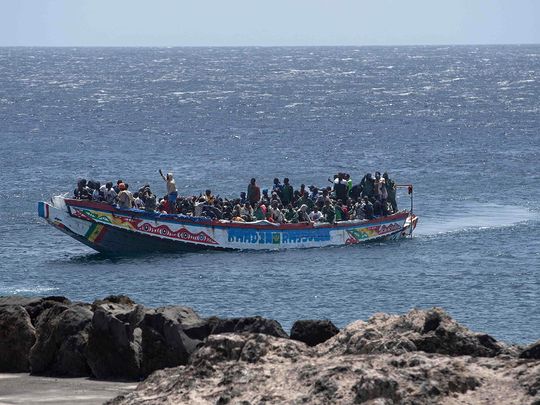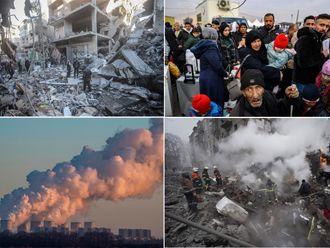
Migration, be it legal or illegal, has a long history in human relations. The derogatory term “wetbacks” was initially used to describe illegal immigrants from Mexico crossing into the United States via the New River at the border. The term gained growing popularity during the 1950s when the Dwight Eisenhower administration began forcibly deporting immigrants who had arrived from the southern part of the continent.
In recent years, migration and illegal immigration issues have escalated, drawing global attention amid both support and criticism, particularly in industrialised and wealthy countries that are common destinations for migrants. Concurrently, this period has witnessed a disturbing rise in racism.
Elections have increasingly brought far-right extremists into power who attribute their society’s problems to immigration, with such groups gaining influence in decision-making circles through their xenophobic rhetoric.
Reinforcing racist attitudes
The frequent sinking of rubber boats in bodies of water like the Manchurian or White Sea has become a routine headline, reinforcing racist attitudes and enticing the public to support those who propagate these views.
During the current US election campaign, Trump’s running mate, JD Vance, stated: “Once we make it to the White House, we will forcibly deport one million undocumented immigrants.” It is worth noting here that the second largest group of illegal immigrants in the United States comes from India.
In August, the German government deported 28 Afghans and announced it was negotiating with Damascus and Kabul to deport those unwilling to stay in Germany. Some reports suggest these numbers could be in the millions, despite such actions potentially contradicting the German constitution and the Geneva Refugee Convention.
The Alternative for Germany (AfD) dominated the regional elections in late August, campaigning with the controversial slogan to expel all non-German elements, including citizens of Germany with foreign origins. Concurrently, a tragic incident occurred in Rollington where three people were fatally stabbed and eight others injured. The assailant was reported to be a Syrian with alleged ties to Daesh.
In Britain, the Conservative government, which lost power after July 5 of this year, had enacted a controversial plan to deport refugees and immigrants by sea to Rwanda. This plan sparked intense debates in Parliament and the British press but was never implemented due to the Conservatives’ electoral defeat.
Ironically, the government that proposed this plan was led by Rishi Sunak. Shortly after the new government took office, an insurrection erupted in response to the murder of a black child by three white girls, who was hastily labelled a Muslim.
This incident ignited attacks by British right-wing groups against people of colour, particularly targeting Islam, despite the fact that the murderer was a British person of colour from an old immigrant family and a Christian.
Public sentiment against immigration is deep-rooted in Britain and occasionally erupts violently, often without waiting for the facts. A report highlighted that blacks in London are three times more likely to be victims of homicide than others.
Lady Sayeeda Warsi, a British lawyer and politician of Pakistani origin, was the first Muslim minister in the British government during David Cameron’s tenure. She resigned in 2014 over the Gaza events and was later appointed to the House of Lords. Warsi wrote a significant book titled “The Enemy Within: A Tale of Muslim Britain,” which explores the challenges faced by immigrants, especially Muslims, in Western societies.
She argues that the public tends to generalise immediately following a terrorist act, attributing it to the individual’s life hardships, personal issues, or even mental disorders in most Western societies. This is not followed if the individual in question is Muslim.
Forced deportation
The process of turning ‘the other’ into an enemy involves three steps: first, marginalisation; second, demonisation; and third, dehumanisation. This progression makes it easier to justify hostile actions against them, such as forced deportation.
Warsi acknowledges that while there is a degree of tolerance in British society and many individuals from diverse backgrounds succeed in fields like media, journalism, private business, education, and medicine, these successes are seldom highlighted. Instead, the negative actions of few are often emphasised.
The root causes of hatred and extremism can typically be traced back to economic conflicts, where some perceive others as unfairly competing for resources or even “stealing their right” to work and live.
Although the visible expressions of this hatred often focus on differences in colour, race, culture, language, religion, or sect because these are more easily used to influence public opinion, the underlying economic tensions are a key driver of adicalization. This undercurrent explains why extreme measures, like the expulsion of individuals labelled as “wetbacks” who are seen as different, are endorsed.
The shift towards right-wing ideologies and the hatred of ‘the other’ is a global phenomenon, prevalent in societies where leaders fail to address economic issues, regardless of geographical location.
Mohammad Alrumaihi is an author and Professor of Political Sociology at Kuwait University




_resources1_16a45059ca3_small.jpg)





